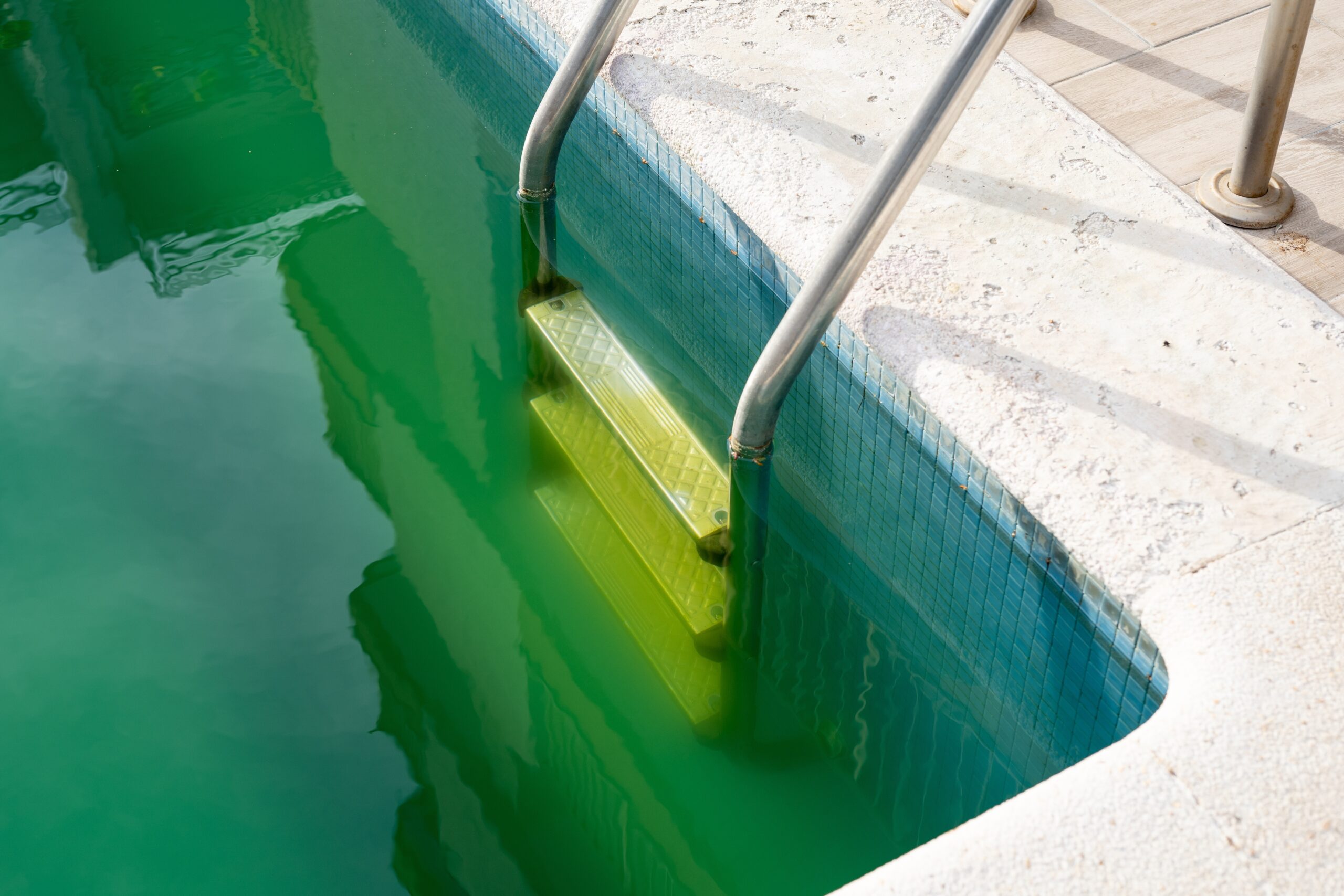As the warmer months approach, ensuring your pool is clean, clear, and algae-free is essential. Spring is the perfect time to take proactive steps to prevent algae growth before it becomes a problem. Algae can turn your pool water green, create slippery surfaces, and make swimming unsafe. At Island Pools, we specialize in keeping pools in Englewood, NJ, and surrounding areas pristine all season long.
In this guide, we’ll cover why early spring maintenance is crucial, effective prevention strategies, and expert-recommended tips to keep your pool algae-free.
Why Is Algae Growth a Problem in Spring?
Algae are microscopic plant-like organisms that thrive in warm, stagnant water with imbalanced chemicals. Springtime provides the perfect conditions for algae to grow due to:
- Rising Temperatures – Warmer weather accelerates algae growth.
- Winter Debris and Contaminants – Leaves, dirt, and other organic material left over from winter can fuel algae blooms.
- Imbalanced Pool Chemicals – Chlorine and other sanitizers may have depleted over the winter, creating an ideal environment for algae.
- Delayed Pool Opening – The longer you wait to open and maintain your pool, the higher the risk of algae growth.
How to Prevent Algae Growth Early in Spring
Taking preventive steps now can save you time, money, and frustration later. Follow these expert-recommended strategies to stop algae before it starts.
1. Remove Debris and Clean the Pool Thoroughly
- Start by removing your pool cover and clearing any accumulated debris.
- Use a pool skimmer to remove leaves, twigs, and insects.
- Vacuum the pool floor to eliminate settled dirt.
- Scrub the pool walls and floor with a brush to loosen algae spores before they have a chance to spread.
2. Test and Balance Pool Water Chemistry
Keeping your pool chemicals balanced is the most effective way to prevent algae. Test your water for the following:
| Chemical Level | Ideal Range |
|---|---|
| pH | 7.2 – 7.6 |
| Chlorine | 1.0 – 3.0 ppm |
| Alkalinity | 80 – 120 ppm |
| Cyanuric Acid (Stabilizer) | 30 – 50 ppm |
- Adjust pH levels – Algae thrive in imbalanced pH conditions.
- Maintain proper chlorine levels – Chlorine acts as a disinfectant to kill algae spores.
- Check alkalinity – This helps stabilize pH levels and prevents sudden chemical fluctuations.
3. Shock Your Pool to Kill Algae Spores
Pool shocking involves adding a high dose of chlorine to kill bacteria, contaminants, and algae spores. In early spring, it’s best to:
- Use calcium hypochlorite or liquid chlorine for strong disinfection.
- Shock the pool at night to prevent sunlight from breaking down chlorine.
- Run the pool pump for at least 8-12 hours to circulate the treatment.
4. Use an Algaecide for Extra Protection
Adding an algaecide can provide an extra layer of protection against algae growth. Choose a non-foaming algaecide to prevent cloudy water.
- Use weekly treatments to maintain algae resistance.
- Follow manufacturer instructions to avoid chemical imbalances.
5. Keep Your Pool Filter Running Efficiently
A clean, well-maintained pool filter is essential in removing algae spores.
- Backwash or clean your filter before opening the pool.
- Run the filter for at least 8 hours daily to keep water circulating.
- Inspect for clogs or damage that could reduce efficiency.
6. Monitor Water Levels and Circulation
Stagnant water encourages algae growth. Ensure proper circulation by:
- Keeping the water level at the middle of the skimmer to maintain filtration efficiency.
- Running pool pumps and jets daily to promote movement.
- Adjusting return jets to create better water circulation.
7. Schedule Professional Pool Maintenance
While DIY maintenance is effective, professional pool care ensures your pool stays in top condition. Island Pools offers expert pool services, including:
- Spring pool openings
- Chemical balancing and algae prevention
- Filter cleaning and equipment checks
- Routine maintenance to keep your pool crystal clear
Frequently Asked Questions (FAQs)
1. How quickly can algae grow in a neglected pool?
Algae can begin forming in as little as 24-48 hours under the right conditions—warm temperatures, poor circulation, and imbalanced chemicals.
2. Can I swim in a pool with algae?
It’s not recommended. Algae can make surfaces slippery, cause skin and eye irritation, and indicate poor water quality that could harbor harmful bacteria.
3. How often should I test my pool water in spring?
Test your water at least twice a week to ensure chemicals remain balanced. After heavy rain or high temperatures, testing more frequently is ideal.
4. What’s the best way to get rid of an existing algae problem?
- Shock the pool with chlorine.
- Brush and vacuum algae thoroughly.
- Clean or replace the filter.
- Use an algaecide for added protection.
- Run the pump continuously until the water clears.
5. How can I prevent algae growth long-term?
- Maintain proper chemical balance.
- Run the pool pump for at least 8 hours daily.
- Clean and vacuum the pool regularly.
- Use preventative algaecide treatments.
Trust Island Pools for Expert Spring Pool Maintenance
Keeping your pool algae-free in spring doesn’t have to be a hassle. With the right preventive measures and professional care, you can enjoy a sparkling, healthy pool all season long.
At Island Pools, we specialize in spring pool maintenance, and full-service pool care in Englewood, NJ, and surrounding areas. Whether you need a pool opening, water treatment, or equipment check, we’re here to help.
📍 Location: 80 Lafayette Pl, Englewood, NJ 07631
📞 Phone: 201-567-2056
📧 Email: matt.islandpools@gmail.com
🌐 Website: https://www.islandpoolstenafly.com/
Schedule your spring pool service today and enjoy a hassle-free swimming season!

